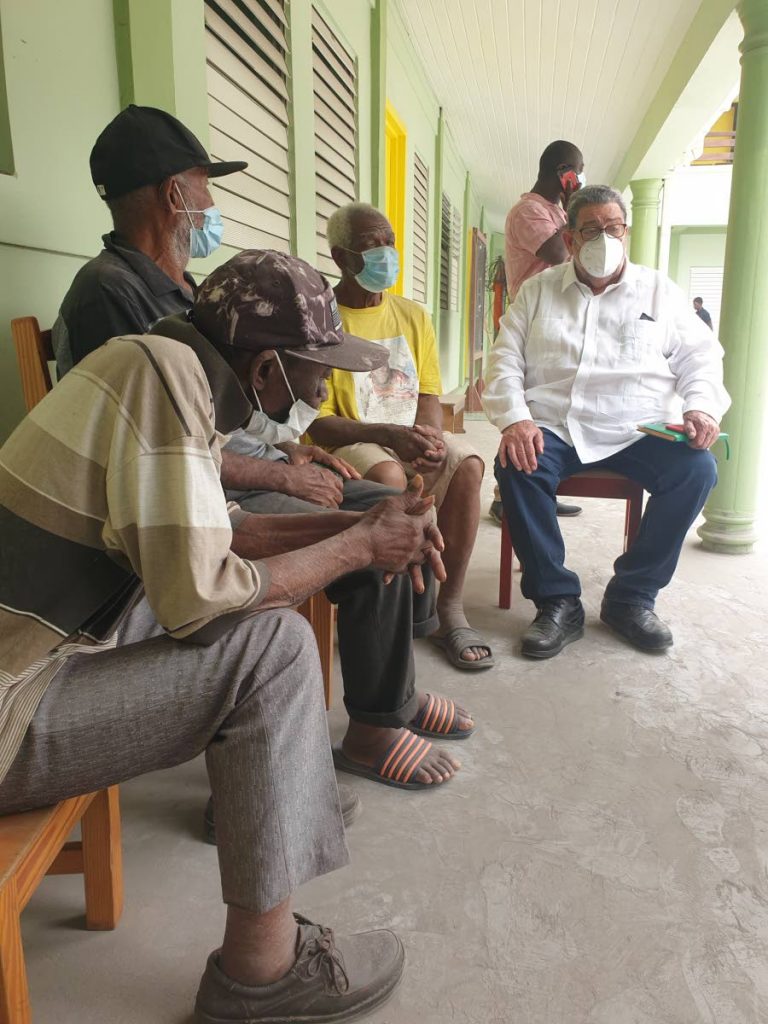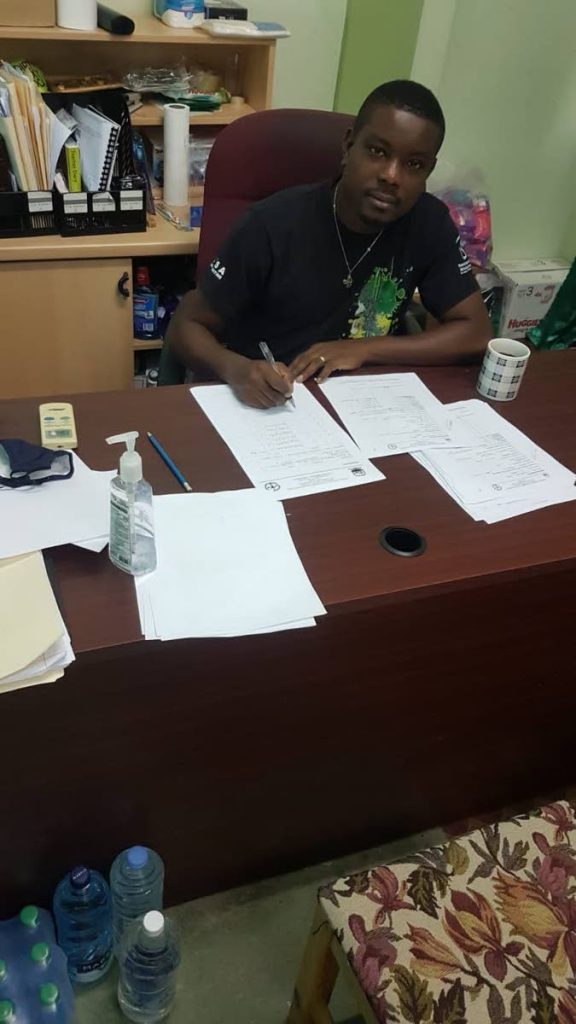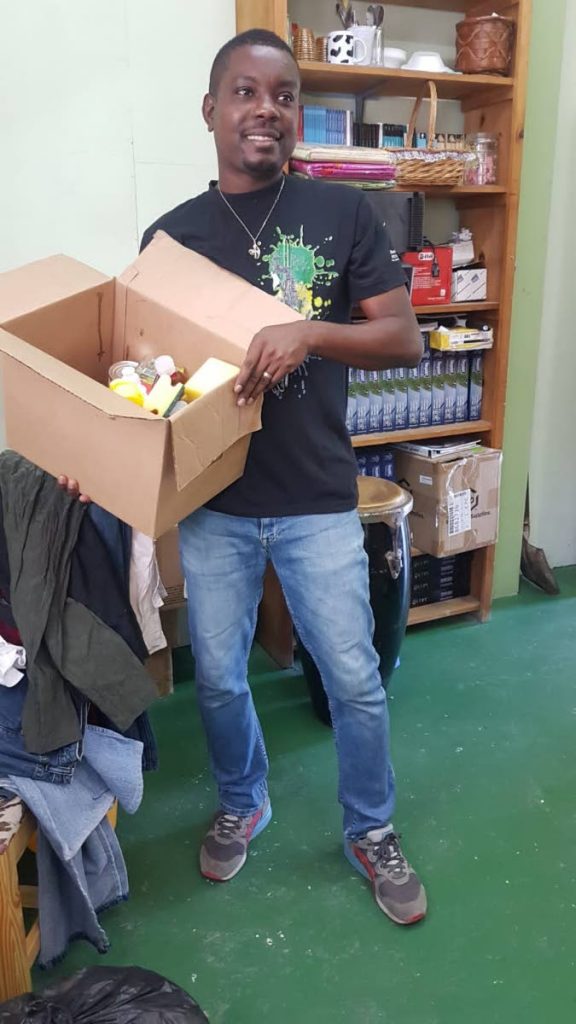Trauma of nowhere to go: Vincentians face new challenge from La Soufriere volcano

As St Vincent and the Grenadines enters into its third week of dealing with effects of the eruption of the La Soufriere volcano, the manager of the Buccament Bay Secondary School shelter, Ronen Francis said he doesn’t believe people have fully understood how their lives are going to change.
Explosive eruptions began on April 9, with subsequent periodic eruptions, causing ash to cover the island and pyroclastic flows. Many people were forced people to evacuate their homes and seek refuge in shelters.
“I don’t think it has sunk in yet: the reality that they will be at a shelter for three to four months before we can clean up enough for them to go back home, if they have homes to go back to,” 34-year-old Francis told Newsday.
Francis, a geography teacher at the school, said fortunately, because the shelter is at a school, evacuees staying there have a school counsellor with whom they can speak.

“It’s still early days, but going forward I think that dealing with the trauma is one of the most important things we have to deal with. Trauma of the volcano erupting and the trauma of being displaced…What I want is for people to understand that this is a revolving situation. We don’t know when eruptions will end," he said.
"The Caribbean and international community have been looking out for the people of St Vincent and the Grenadines, but we will need more than monetary support. Trauma is not something that is easily gotten over. They will certainly need a lot of attention” – something with which trauma specialist Hanif Benjamin totally agrees.
“Devastated is the first word that comes to mind to describe what they must be feeling right now,” Benjamin told Sunday Newsday. “There are phases, and right now they are in the survival phase – in need of food, clothing and shelter. The truth has not set in yet.”
Eventually, Benjamin said, they will want to go back into villages, to go back home. “When they realise it’s not the same, that’s when shock and stress will set in. They need to treat with those issues now, preparing them for what it’s to come, because if it is not that will be a different tragedy to deal with. It needs to be addressed now.” Benjamin said this is something that needs to be dealt with by specialists, and once he’s called upon to assist he definitely will. “Field traumatology is what I’m trained in.”
The Buccament Bay shelter is run by the teachers of the school and the 85 evacuees currently staying there are mainly families – parents and children. “Initially we had 110, but we sent some to other shelters that had more space to make everyone more comfortable,” Francis said.
Everything needed for their stay there is provided by the National Emergency Organisation (NEMO), private citizens and businesses. Everyone on the facility was given the covid19 rapid test – staff, security and evacuees, and the facility is close to a clinic that can treat emergency situations.

Breakfast is served at around 7.30 am, and is available to not only the people at the shelter, but also for those who have registered and are living in private homes nearby. “All meals are provided to ease strain on people who were gracious enough to take in persons who were evacuated. At the end of the day, when you are used to supporting your family alone, an extra person to feed and clothe may be a bit difficult.”
After breakfast, Francis said, they try to have a sporting, fun or academic activity for the children. These are supported by the counsellors of the school, the Child Protection Agency and Unicef. “Some adults help in the kitchen and some help with general cleaning around the facility and assist the teachers. We are yet to start an adult programme,” Francis said.
Lunch is occasionally catered by a restaurant sanctioned by NEMO, or a church. Dinner is served around 7 pm. “Sometimes this is catered, but most of the time we cook,” Francis said.
“We try to allow parents to set bedtime for children, usually around 8-9 pm. We also have a curfew for security for shelter. Mine is midnight to ensure they everyone is in the shelter.” Everyone is free to go and come as they please during the day, but once they leave they must log out and sign in when they return. Everyone has their temperature checked at the gate, and there are taps and soap to use to sanitise before returning to the facility.
Francis said he is looking forward to the recovery period, towards which he expects the focus of his thesis to make a major contribution. He is currently doing a doctorate in soil science at the UWI, St Augustine campus, and his thesis is in soil rehabilitation.
“My work will look at different land management practices and how they affect soil degradation and what strategies we can use to improve soil aggregation. I look at degraded soil and how we can use organics to improve the soil for agricultural production…My thesis is quite applicable. We have mineral from the ash that is covering the soil. It will change the dynamic of the soil in the affected areas…Hopefully, I’ll be put in to action when the time is right. Right at home.”

Comments
"Trauma of nowhere to go: Vincentians face new challenge from La Soufriere volcano"